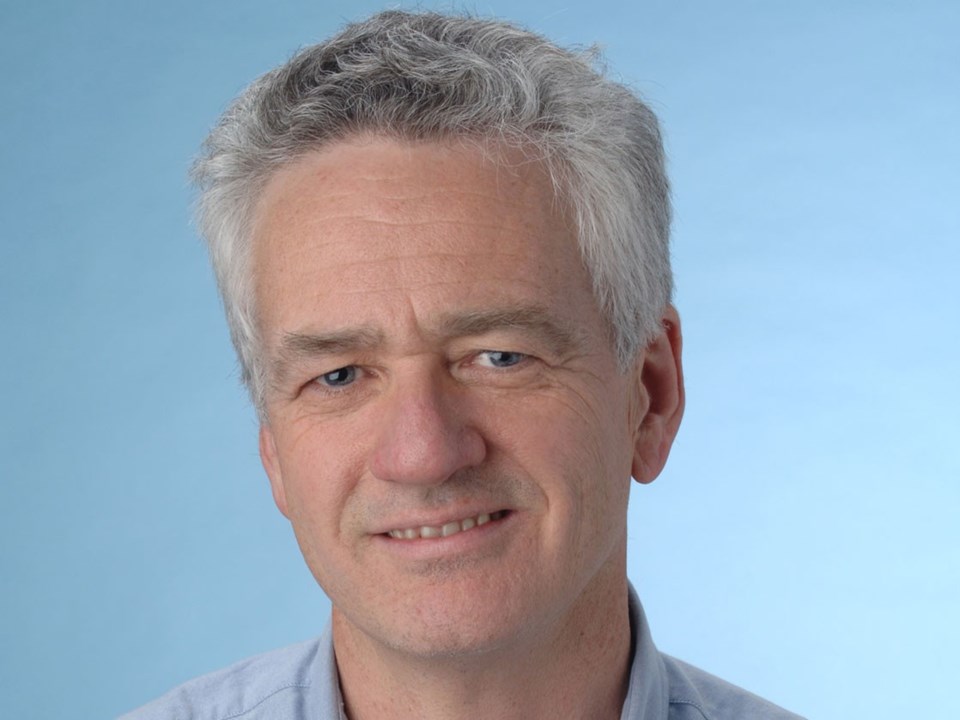What: Whistler Readers and Writers Festival
What: Writing for Radio
When: Saturday, Sept. 15, 11 a.m.
Tickets: $15
Info: theviciouscircle.ca
Writing for radio and print may be run-on-sentences away from each other in style, but a great story is always audible and visible no matter what the medium.
“The commonality between the two is it’s a good story or not,” Mark Forsythe says after signing off from his discussion forum, B.C. Almanac, aired on CBC radio.
“There is a wealth of potential offerings from our listeners. I like to tap into that and make it a two-way flow. We do that every day, whether reading an e-mail from a listener or an open line discussion. People have lots to say and lots of stories. We do look at those stories and say, ‘Is there a theme? Is there more here than a radio program?’”
Forsythe hangs by a radio wave between the two mediums often interchanging stories from transmitter to print – one of the topics discussed in his workshop Writing for Radio on Saturday, Sept. 15 at 11 a.m. at MY Millennium Place as part of the Whistler Readers and Writers Festival, Sept. 14 to 16.
“Radio is fleeting,” he said. “It is really valuable, especially for history and personal history, to put it down on paper. That is part of my motivation to do book projects.”
Forsythe and co-author Greg Dickson recently finished Forsythe’s newest B.C. storytelling adventure, The Trail of 1858: British Columbia’s Gold Rush Past. The 250-page paperback will be released by Harbour Publishing next month as part of a history book series. (Whistler writer Stephen Vogler’s book, Top of the Pass: Whistler and Sea-to-Sky Country, is also part of this series.)
Forsythe’s publishing credits also include the British Columbia Almanac (Arsenal 2001) as well as The B.C. Almanac Book of Greatest British Columbians (Harbour 2005).
While Forsythe appreciates the stories and the effort required to preserve them — partial proceeds from the sale of his books are donated to related non-profit organizations associated with a book’s theme — the ability to connect with one person at a time, to hear the emotion in their voice, is what has kept him behind a microphone for more than 30 years.
“I think that is what is important about radio,” he said of a medium that still has a place in a television and Internet world. “These are real voices you are hearing. You can hear the real emotion in a voice that you can’t get over the Internet. Every year I am fascinated by the stories people have to tell and (I like) the idea of speaking to one listener, not a thousand, and helping people connect with that interview or discussion that they can feel they can contribute to.”
Radio’s simple delivery also appeals to Forsythe.
“Radio stories tend to be clearer and straight forward,” he said. “Print has more nuances to it and it can delve deeper into detail.”
For more than 10 years, Forsythe has red inked run-on sentences made by new students learning about the art of radio writing at night courses at BCIT. Forsythe will condense the 12-week course into two hours for the Whistler workshop, covering topics such as the difference between radio and print writing, writing from the field and freelance opportunities. The only quizzing for the class is a question and answer period with Forsythe afterwards.
“Teaching really forces you to articulate what you do,” he said. “I do what I do on autopilot for the most part now and (teaching) keeps me more honest and conscious of questioning ‘How I am doing here in writing this script’ or ‘Am I asking interviewees the questions listeners want to hear asked?’”
The Writing in Radio seminar is one of many workshops offered on the Saturday. Other classes include Memoir writing with Elizabeth Lyon (8:30 a.m. & 2 p.m.), Writing for Young Adults with Paulette Bourgeois (8:30 a.m.), Storyboarding a Short Film with Rebecca Wood Barrett (8:30 a.m. & 4:30 p.m.), Getting the Novel Done with Caroline Adderson (11 a.m.), Travel Writing with Leslie Anthony (11 a.m.), Rewriting and Editing with Elizabeth Lyon (11 a.m. & 4:30 p.m.), Citizen Journalism and the Writers’ Role in a Political World with Michael Tippet (2 & 4:30 p.m.) and Writing from a Women’s Perspective with Sheilagh Rogers (4:30 p.m). Workshops are $15 a class and take place at MY Millennium Place.
Workshops are also hosted on Sunday, Sept. 16 at 9 a.m., including Acting on Your Writing Dreams with Wendy Morton at Behind the Grind, How to Break into the Market of Writing For Newspapers and Magazines with Leslie Anthony at the Garibaldi Lift Company (GLC), and Food Writing with The Urban Peasant, James Barber at Black’s Pub.
To register, visit theviciouscircle.ca or call Stella at 604-932-4518.




